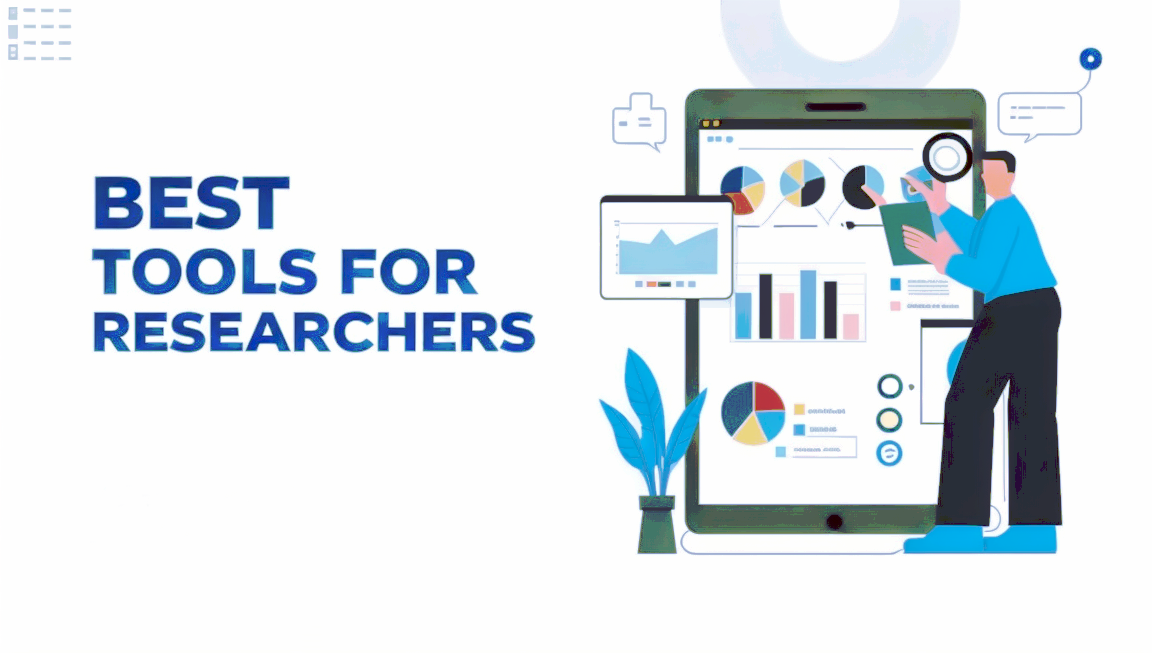International Scientific Research Journals: Bridging Borders and Advancing Knowledge

Understanding scientific research journals
Scientific research journals serve as crucial platforms for researchers to communicate their findings and contribute to the advancement of knowledge. These journals are specialized publications that facilitate the dissemination of scientific knowledge to a global audience. They provide a formal medium for researchers to document and share their research methodologies, findings, and conclusions.
Importance of international collaboration in research
International collaboration plays a vital role in scientific research, fostering the exchange of ideas, expertise, and resources on a global scale. Collaborative efforts across borders enable researchers to pool their diverse knowledge and perspectives, resulting in more comprehensive and impactful research outcomes. By connecting scientists from different countries and institutions, international collaboration enhances the quality and reliability of scientific research.
Role of journals in disseminating scientific knowledge globally
Scientific journals serve as the primary avenue for publishing research articles and making them accessible to the scientific community worldwide. Through rigorous peer review processes, these journals ensure the quality and integrity of published research. By providing a platform for researchers to share their findings, methods, and data, journals act as a bridge, connecting scientists from different regions and disciplines and facilitating the exchange of knowledge.
Evolution of international scientific research journals
The concept of scientific journals dates back several centuries. The earliest known research journal, "Philosophical Transactions of the Royal Society," was established in 1665 in the United Kingdom. This marked the beginning of a new era in scholarly publishing, where scientists could share their discoveries with a wider audience.
Over time, international collaboration in scientific research gained prominence. Scientists recognized the need to collaborate across borders to tackle global challenges and make significant scientific breakthroughs. As a result, international scientific research journals emerged, providing a platform for researchers from different countries to publish and access scientific knowledge.
With the advent of technological advancements, such as the internet and digital publishing platforms, the landscape of journal publishing underwent a significant transformation. These advancements enabled easier and faster dissemination of research articles, eliminating geographical barriers and allowing researchers from all corners of the globe to contribute and access scientific knowledge.
Significance of international scientific research journals
International scientific research journals play a crucial role in advancing scientific progress and fostering global collaboration. They facilitate the exchange of ideas, methodologies, and results among researchers worldwide. By providing a platform for open communication and discussion, these journals accelerate scientific discoveries and contribute to the collective knowledge of the scientific community.
Moreover, international journals promote interdisciplinary research and knowledge integration. Researchers from different disciplines can collaborate and publish their findings in these journals, enabling the cross-pollination of ideas and the development of innovative solutions to complex problems. This interdisciplinary approach expands the boundaries of knowledge and encourages holistic and comprehensive scientific exploration.
Additionally, publishing in reputable international journals enhances the credibility and impact of scientific findings. Researchers strive to publish their work in renowned journals to gain recognition from their peers and the scientific community. The rigorous peer review process employed by these journals ensures the quality and integrity of published research, further solidifying their role as trusted sources of scientific knowledge.
Publication Process in International Scientific Research Journals
Submission and peer review process
Submitting a manuscript to an international scientific research journal follows a structured process. Authors are required to adhere to specific guidelines and criteria set by the journal. These guidelines typically include instructions on formatting, citation style, word limits, and ethical considerations.
Once a manuscript is submitted, it undergoes a rigorous peer review process. Peer review involves the evaluation of the manuscript by independent experts in the field. These experts assess the quality, validity, and significance of the research presented in the manuscript. The peer review system acts as a quality control mechanism, ensuring that only high-quality and reliable research gets published.
Communicating research effectively
Crafting a compelling research paper title and abstract is crucial to attract readers' attention and entice them to read the full article. The title should succinctly capture the essence of the research, while the abstract provides a concise summary of the study's objectives, methods, results, and conclusions.
To effectively communicate their research, authors should structure their articles following a standard format: introduction, methods, results, and discussion. The introduction sets the stage by providing background information, outlining the research problem, and stating the study's objectives. The methods section details the research design, data collection methods, and statistical analyses used. The results section presents the findings, often accompanied by tables, figures, and data visualizations. Finally, the discussion section interprets the results, addresses the research questions, and highlights the broader implications and potential future research directions.
Clear and concise language is essential in scientific writing. Authors should strive for clarity and precision, avoiding jargon, convoluted sentences, and redundant phrases. The use of plain language allows for easy comprehension and facilitates knowledge transfer across different disciplines and linguistic backgrounds.
Ethical considerations and publication norms
Ensuring ethical conduct in scientific research and publication is of utmost importance. Authors must address conflicts of interest and potential biases to maintain the integrity and credibility of their work. They should disclose any financial, professional, or personal relationships that may influence the research findings or interpretation.
Confidentiality and data integrity are also critical ethical considerations. Researchers must protect the privacy and anonymity of study participants, ensuring that their data is handled securely. Moreover, authors should adhere to strict data management practices, ensuring accuracy, reproducibility, and transparency.
In recent years, open-access initiatives have gained momentum, aiming to make scientific research more accessible to the global community. Open-access journals provide free and unrestricted access to research articles, removing barriers that impede knowledge dissemination. This shift towards open access has democratized scientific research and accelerated scientific progress by enabling wider access and collaboration.
International Collaboration and Scientific Research Journals
Promoting international collaboration
International scientific research journals play a pivotal role in fostering global scientific networks. They connect researchers from different countries and institutions, facilitating collaboration and the exchange of ideas. By publishing research articles from diverse geographic locations, these journals encourage the formation of international research partnerships and collaborations.
Successful international research collaborations have yielded groundbreaking discoveries and advancements in various fields. For instance, the discovery of the Higgs boson particle at the Large Hadron Collider involved scientists from over 100 countries working together to unravel the mysteries of the universe. Such collaborations demonstrate the power of international cooperation in pushing the boundaries of scientific knowledge.
International research publications also benefit from diverse perspectives. Researchers from different cultural backgrounds and academic traditions bring unique insights and approaches to scientific problems. This diversity leads to more comprehensive and robust scientific findings, enriching the global knowledge base.
Language barriers and overcoming them
Language diversity poses challenges in international scientific research. Researchers from non-English-speaking countries may face difficulties in publishing their work in international journals due to language barriers. Translation and language editing services play a crucial role in bridging this gap by enabling non-English-speaking researchers to communicate their findings effectively.
Considering the importance of language in scientific research, initiatives are underway to encourage multilingual scientific publications. These initiatives aim to make scientific knowledge accessible to a wider audience, regardless of their native language. By promoting research publications in multiple languages, researchers can overcome language barriers and foster inclusivity and global collaboration.
Impact and recognition of international research
International research publications contribute significantly to the broader impact of scientific discoveries. By reaching a global audience, these publications have the potential to influence policies, shape scientific fields, and drive societal progress. Research findings published in international journals often attract more attention and citations, fostering further research and validation.
Publishing in international journals enhances the reputation of individual researchers and their affiliated institutions. It signifies a commitment to rigorous research practices and positions them as contributors to the global scientific community. Institutions with a strong publication record in international journals gain recognition and prestige, attracting top talent and research collaborations.
Citation metrics, such as the h-index and impact factor, serve as indicators of the influence and impact of research publications. International research publications contribute significantly to these metrics, amplifying the recognition and visibility of researchers and their work in the global scientific community.
Future Directions and Digital Transformation
Technological advancements shaping research journals
Technological advancements have revolutionized the landscape of research journal publishing. Digital publishing platforms and online accessibility have transformed the way scientific articles are disseminated, accessed, and consumed. Researchers can now access a vast pool of scientific knowledge at their fingertips, regardless of their geographical location.
Evolving formats, such as interactive multimedia content and data visualizations, have made scientific articles more engaging and accessible. Researchers can now present their findings in dynamic ways, leveraging videos, animations, and interactive charts to enhance understanding. These multimedia elements break down complex concepts and cater to different learning styles, expanding the reach and impact of research publications.
Artificial intelligence (AI) has also found its way into the editorial processes of research journals. From manuscript submission and peer review management to automated language editing and plagiarism detection, AI-driven tools streamline editorial workflows, making the publishing process more efficient and reliable. These advancements in AI technology present exciting opportunities for accelerating the dissemination of scientific research.
Collaboration in the digital era
The digital era has paved the way for new forms of collaboration in scientific research. Virtual conferences and digital platforms offer researchers the ability to connect and share their findings without geographical constraints. These platforms facilitate real-time discussions, collaborations, and networking opportunities, fostering global scientific communities.
Open science and data sharing have gained prominence in the digital age, enabling researchers to collaborate and build upon each other's work. By openly sharing research data and methodologies, scientists can accelerate discoveries and uncover new insights. Initiatives such as open-access repositories and data-sharing platforms promote transparency and inclusivity in scientific research.
Looking ahead, future trends in collaborative research will likely focus on leveraging emerging technologies, such as blockchain and decentralized platforms. These technologies offer secure and transparent frameworks for data exchange, ensuring data integrity and privacy. The implications of these trends extend beyond scientific research, influencing various industries and driving innovation.
Ethical considerations in the digital age
As research and publication processes move into the digital realm, ethical considerations must adapt to the evolving landscape. Data security, privacy, and responsible data use become paramount to protect researchers, participants, and the integrity of scientific research.
Maintaining high ethical standards in online research presents challenges, particularly with regards to informed consent and data protection. Researchers must ensure that participants' rights and privacy are safeguarded throughout the research process, including data collection, storage, and analysis. Compliance with ethical guidelines and regulations is essential to preserve the trust and integrity of the scientific community.
Guidelines for maintaining ethical standards in digital scientific research are continuously evolving to address emerging issues and technological advancements. Researchers must stay informed and adhere to these guidelines to ensure responsible, transparent, and ethical practices.
Summary and Frequently Asked Questions (FAQs)
Summary of the key points discussed
In this article, we explored the crucial role of international scientific research journals in bridging borders and advancing knowledge. We discussed the definition, purpose, and significance of scientific research journals in disseminating scientific knowledge globally. We also explored the publication process, including submission and peer review, effective communication of research, and ethical considerations.
International collaboration and its promotion through scientific research journals were highlighted, emphasizing the benefits of diverse perspectives and the challenges posed by language barriers. The impact and recognition of international research publications were also examined, along with future directions and the digital transformation of research journals. Lastly, we discussed ethical considerations in the digital age and the importance of maintaining ethical standards in scientific research.
FAQ section addressing common queries
-
How can researchers contribute to international scientific research journals?
Researchers can contribute to international scientific research journals by adhering to the journal's submission guidelines and criteria. They should conduct rigorous and original research, present their findings clearly and concisely, and address the implications and impact of their work.
-
What steps can authors take to increase the chances of publication?
Authors can increase the chances of publication by carefully selecting an appropriate journal for their research, ensuring that their work aligns with the scope and focus of the journal. They should adhere to the journal's formatting and citation style guidelines, incorporate feedback from peers and mentors, and address any reviewer comments effectively.
-
Are there financial implications associated with publishing in international journals?
There may be financial implications associated with publishing in international journals, such as article processing charges (APCs) or publication fees. However, many journals offer waivers or discounts for researchers from low-income countries or institutions. Authors should carefully review the journal's policies and consider potential funding options to cover publication costs.






